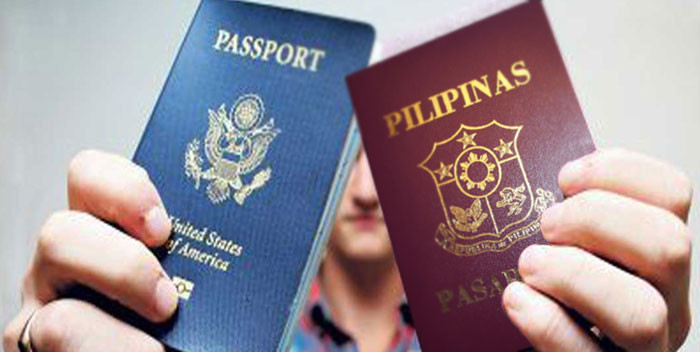 This past Saturday at the Consulate General of the Philippines in Chicago, eleven Filipino-Americans took the step of making that label official by taking an oath to become full-fledged dual Filipino and American citizens. After being sworn in by Deputy Consul General Romulo Victor M. Israel Jr., the new citizens were welcomed with plates of food (naturally) while some went one room over to claim their official Philippine passports.
This past Saturday at the Consulate General of the Philippines in Chicago, eleven Filipino-Americans took the step of making that label official by taking an oath to become full-fledged dual Filipino and American citizens. After being sworn in by Deputy Consul General Romulo Victor M. Israel Jr., the new citizens were welcomed with plates of food (naturally) while some went one room over to claim their official Philippine passports.
It was a special ceremony held in October specifically in accordance with Filipino-American History Month, but according to Filipino American Young Leaders Program (FYLPro) delegate Louella Cabalona, it’s a “weekly service of the Philippine consulate”. Cabalona; along with Julien Baburka, Abbey Eusebio and Jan Paul Ferrer; make up the Chicago delegates of FYLPro, a program established by the Philippine ambassador to get young Filipino-Americans more interested in the affairs of the Philippine government. “Our association with the consulate is a byproduct of our ambassador’s vision, for us delegates,” says Cabalona.
While the dual citizenship service is readily available, extra effort was put into this special swearing in ceremony. As preparations began, a survey was sent out to gauge interest in the process (which can still be taken here)
Predictably, there are concerns about the drawbacks of becoming a dual-citizen, the most common being about taxes. “I’m not a tax expert,” starts Cabalona, “[but] by the virtue of being Filipino alone will not require you to pay tax to the Philippines”. Of course, there are advantages too. New dual citizen Cheerbelle Guerrero noted that she took the oath because she’s “a Filipino by heart, [and it’s a] good opportunity to show [her] love for the Philippines”. The ability to stay in the Philippines past thirty days without a visa was also a pretty good driving factor. A comprehensive list of the requirements for dual-citizenship, advantages and drawbacks can be found here.
Many Filipino-Americans sworn in saw the value in being able to stay longer in their other home country, or even go to school there or influence high level government via absentee voting. For Cabalona though, the key reason for becoming a dual citizen is much simpler, but comes from a more cosmopolitan point of view. “If you are eligible in becoming a citizen of a country, you should claim our right to be so.” Hopefully this swearing in ceremony will lead to a snowball effect of more people seeking out information, getting their questions answered, and claiming the citizenship that is rightfully theirs.
Post by Ryne Dionisio
 Ryne is a proud Filipino/gamer/geek from the streets of Chicago. His skills include proficiency in HTML, CSS, social networking, Street Fighting, and photographing/critiquing food. He is currently using his powers for good, developing websites for IBM and contributing articles to BakitWhy.com. He is also the host and producer of BakitCast, the official podcast of BakitWhy.
Ryne is a proud Filipino/gamer/geek from the streets of Chicago. His skills include proficiency in HTML, CSS, social networking, Street Fighting, and photographing/critiquing food. He is currently using his powers for good, developing websites for IBM and contributing articles to BakitWhy.com. He is also the host and producer of BakitCast, the official podcast of BakitWhy.
Discover other similar posts on Ryne's blog.
featured image src: clarkisit.com

